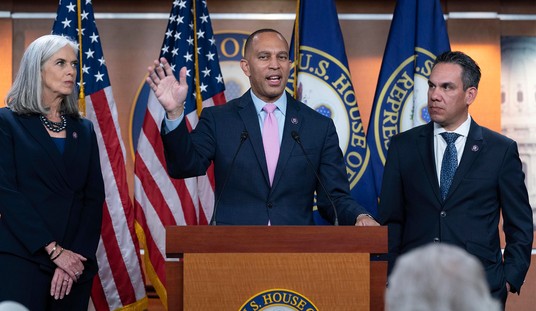In 1973, nine unelected judges (all men), overturned almost two hundred years of unbroken precedent and historical practice and declared that there existed in the United States Constitution a heretofore undiscovered constitutional right to an abortion. They did this despite the fact that nothing in the text of the Constitution even hinted at the existence of such a right, and that for hundreds of years numerous states had had unmolested laws on the books either forbidding or restricting the practice – not to mention a complete absence of evidence of any kind that the drafters or ratifiers of the Constitution had abortion within their contemplation when the Constitution was written (even though abortion was a well-known historical practice at the time). About this subject, E.J. Dionne is curiously silent.
Not to be outdone, numerous judges over the last forty years have echoed in their decisions their belief, first set forth in the repudiated Furman v. Georgia decision, that the death penalty is unconstitutional, in spite of the fact that the explicit text of the Fifth Amendment states that it is within the Constitutional power of the government to take the life of its citizens as long as due process is afforded. Say what you will about whether the death penalty is a good idea; no serious person can contend that it is actually unconstitutional. About this subject, E.J. Dionne is curiously silent.
All over the country now as we speak, federal judges are overturning the clearly stated and democratically-expressed views of the voters of this country and declaring that laws or state constitutional amendments affirming the unbroken understanding of millenia of human practice that marriage is an institution that exists between a man and a woman. The idea that the Constitution was intended to provide a safeguard for the existence of gay marriage is so farfetched that anyone with a passing knowledge of the Constitution, its history or its ratification cannot speak it aloud without breaking into gales of laughter. Even liberals acknowledge the undisputable fact that at the time of the Constitution’s ratification, buggery was widely punishable with death – the notion that men who doubtlessly approved of a regime where a single instance of sodomy was a capital offense could have somehow held within their contemplation a universal right within the Constitution to gay marriage boggles the mind of anyone capable of basic reason. Again, say what you will about the desirability vel non of gay marriage as an institution; the notion that it is demanded by the Constitution is unserious and completely unsupportable; and yet this is the very basis upon which numerous federal judges have stricken down state laws in a transparent attempt to usurp the power of the legislature to define marriage. And yet, about these subjects. E.J. Dionne is silent.
No, what really gets E.J. Dionne’s panties in a wad – what he really objects to in terms of “anti-democratic sabotage,” is when a panel of the D.C. Circuit decides that when a statute says “Federal” it means Federal and when it says “State” it means State. Dionne himself acknowledges that if the D.C. Circuit committed an error at all, that error was in taking the words of a poorly-written statute at face value:
The law includes a mandate requiring Americans to buy health insurance and subsidizes those who need help to pay their premiums. The law falls apart without the subsidies, which go to its central purpose: providing insurance for those who cannot afford it.
But the law was not particularly well drafted. It’s not uniquely flawed in this respect. As Judge Andre M. Davis wrote in a concurrence to the 4th Circuit ruling: “Neither the canons of construction nor any empirical analysis suggests that congressional drafting is a perfectly harmonious, symmetrical and elegant endeavor. … Sausage-makers are indeed offended when their craft is linked to legislating.”
In other words, Dionne concedes that the fault here lies with the people who drafted the law, who chose apparently not to write the law to say what they actually meant. Mind you, Dionne (and the dissent and the Fourth Circuit) have to invent a completely fictitious post hoc history to say that Congress meant anything other than what the law says – as has been exhaustively covered in the briefing on this issue, no contemporary legislative history exists on either side of this issue. And so Dionne is forced to pretend (along with the Halbig dissent and the 4th Circuit opinion) that the contrary explanation is the obviously correct one, because it is the one Democrats currently favor, and they are the ones who forced this law down the throats of America.
Griffith has to pretend that his cramped reading of the written text — again, a reading utterly disconnected from the reality of the law’s history — is the only one possible. From there, he goes on to force the government and those losing their subsidies to live with a patently absurd result.
Edwards’ logic is compelling: that the Griffith decision “defies the will of Congress” and goes along with a “not-so-veiled attempt to gut the Patient Protection and Affordable Care Act.”
Certainly no one would dispute that the Halbig decision thwarts what the Democrats currently in office want. It’s a matter of reasonable dispute as to whether it thwarts what Congress wanted at the time they passed the law (supposing we care about what they wanted as opposed to what they said). But E.J. Dionne and his ilk have constructed a world in which judicial disregard for the intentions of the drafters of a document (most especially including the Constitution) is a perfectly acceptable feature of our Republic. He cannot now be heard to complain that the sauce for the goose doesn’t go well with the gander.














Join the conversation as a VIP Member